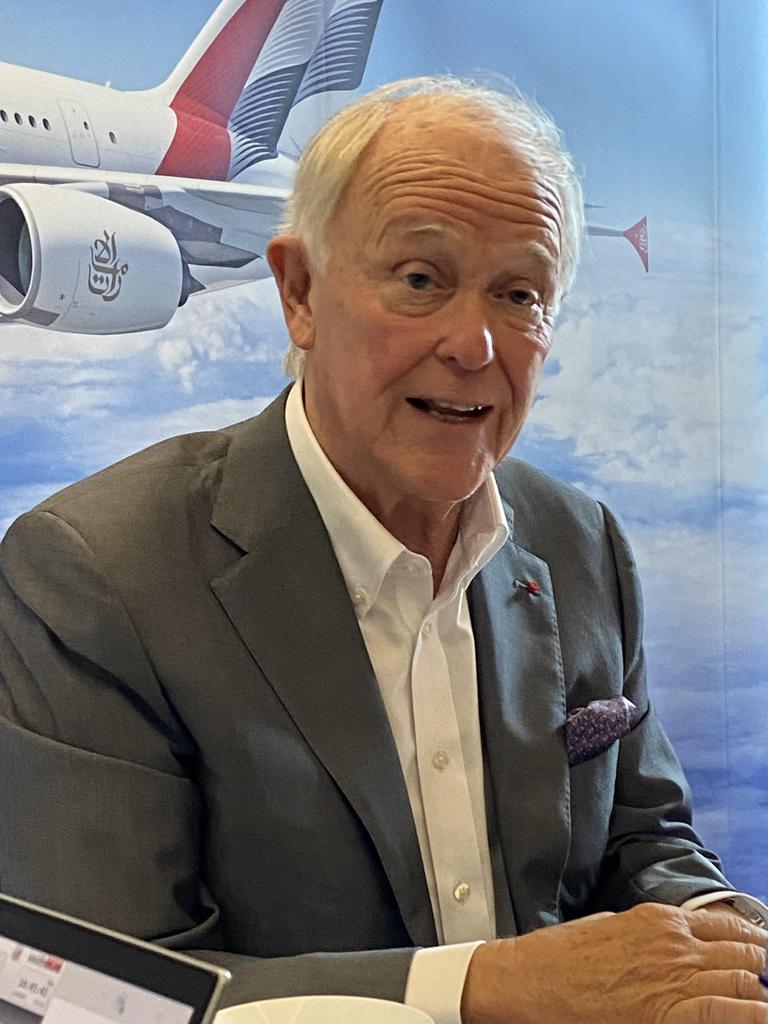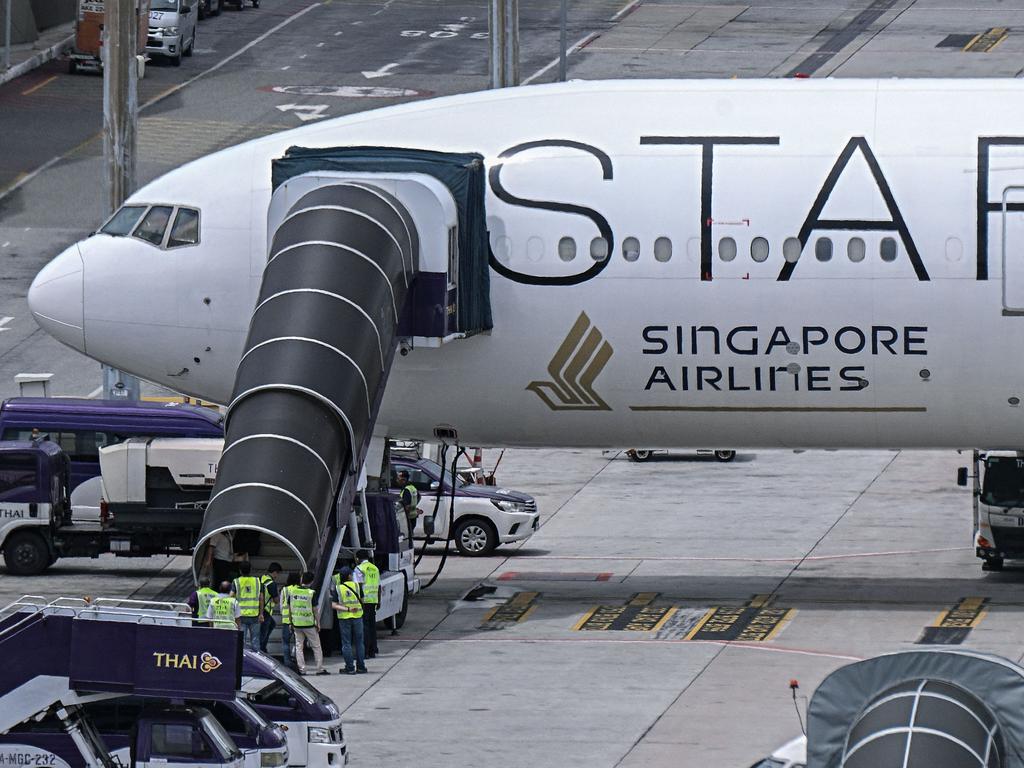Airlines playing it safe with seatbelt signs post SQ321, says Emirates boss
Travellers should expect seat belt signs to come on more often and for longer as airlines take a conservative approach to turbulence, says Emirates president Tim Clark.
Business
Don't miss out on the headlines from Business. Followed categories will be added to My News.
Emirates President Tim Clark has warned travellers to expect seat belt signs to stay on for longer and more often on flights as airlines take a more conservative approach to turbulence in the wake of the Singapore Airlines drama.
One man died, and more than 100 passengers and crew were injured, when the flight struck turbulence en route from London to Singapore on May 21.
The pilots diverted to Bangkok and as of Sunday, 22 people from flight SQ321 remained in hospitals in Bangkok receiving treatment for injuries sustained in the terrifying event.
Speaking on the sidelines of the International Air Transport Association AGM in Dubai, Sir Tim said turbulence was being experienced more often on flights and airlines were “upping their game with regards to making sure passengers were strapped in”.
“Well before (the SQ incident) there was evidence we were beginning to see not a geographical trend of where these things are happening but a ticking up of the turbulence that is going on,” said Sir Tim.
“Some people say it’s climate change, some say flights are increasing; the fact is the incidence is going up.”
He said Emirates had experienced their “own fair share of issues” although not as bad as Singapore Airlines and work was underway across the industry to improve safety.
“We’re trying to use AI (artificial intelligence) to give us a predictive analytic capability with regards to where turbulence is,” said Sir Tim.
“We want to see if that can predict weather patterns and the kind of constituents of clear air turbulence such as the wind velocities of the jetstreams, the movement of the jet stream, the latitude of the jet stream and a combination of winds in the upper atmosphere that causes the vortexes.”

While that work progressed, it was to be expected airlines would take a more conservative approach to making sure people were in their seats and strapped in, he said.
“You might see of the TV screens messages flashing up a little bit more than they have in the past, and where the flight crew has some forward information (about turbulence) it’s likely they’ll be proactive and feed that information to the cabin crew as well as putting it on screen,” Sir Tim said.
“Can we manage this better? Probably. Is it going to be faultless? No it won’t but to mitigate the risk we have to do certain things.”
The outspoken Emirates president also took aim at Boeing over delays to aircraft deliveries, which had forced the airline to refurbish older planes while they waited for new arrivals.
It was an issue confronting numerous other carriers, including Virgin Australia, which was waiting on nine new Boeing 737 Max 8s, six of which would not arrive till next year.
Sir Tim said Boeing was well aware of his frustration and that of others in the industry after waiting five years for 777-9s with no firm date for deliveries.
“Our business has had to take on a $3bn cash program to retrofit all of our aircraft because we are losing ground on product, that’s seats, that’s televisions,” he said.
“We need our aeroplanes, we cannot face constant delays, we’ve got a business to run and the bill for refurbishing all these aeroplanes should be put at Boeing’s door.”
As well as supply chain issues, Boeing’s delivery pipeline was being held up by quality assurance problems at the manufacturer following the door plug blowout on an Alaska Airlines’ Boeing 737 Max 9.
The cause was found to be missing bolts in the door plug, prompting a major overhaul of quality assurance on the Boeing shopfloor.
Sir Tim said the industry needed Boeing to survive and to continue to build aeroplanes, which were widely regarded as excellent aircraft.
Despite geopolitical unrest and elections looming in India, Mexico, South Africa and Great Britain, passenger demand for air travel continued to grow at around 4 per cent a year.
“The world is a troubled place at the moment, but through it all demand continues to grow,” said Sir Tim.
“Normally political changes see a diminishing demand, but we’re seeing nothing like that at all.
“For the first time in my career, and it’s been a long one, it’s as if people are abandoning the politics and just getting on with their lives.”
The writer is in Dubai as a guest of IATA.
Originally published as Airlines playing it safe with seatbelt signs post SQ321, says Emirates boss









